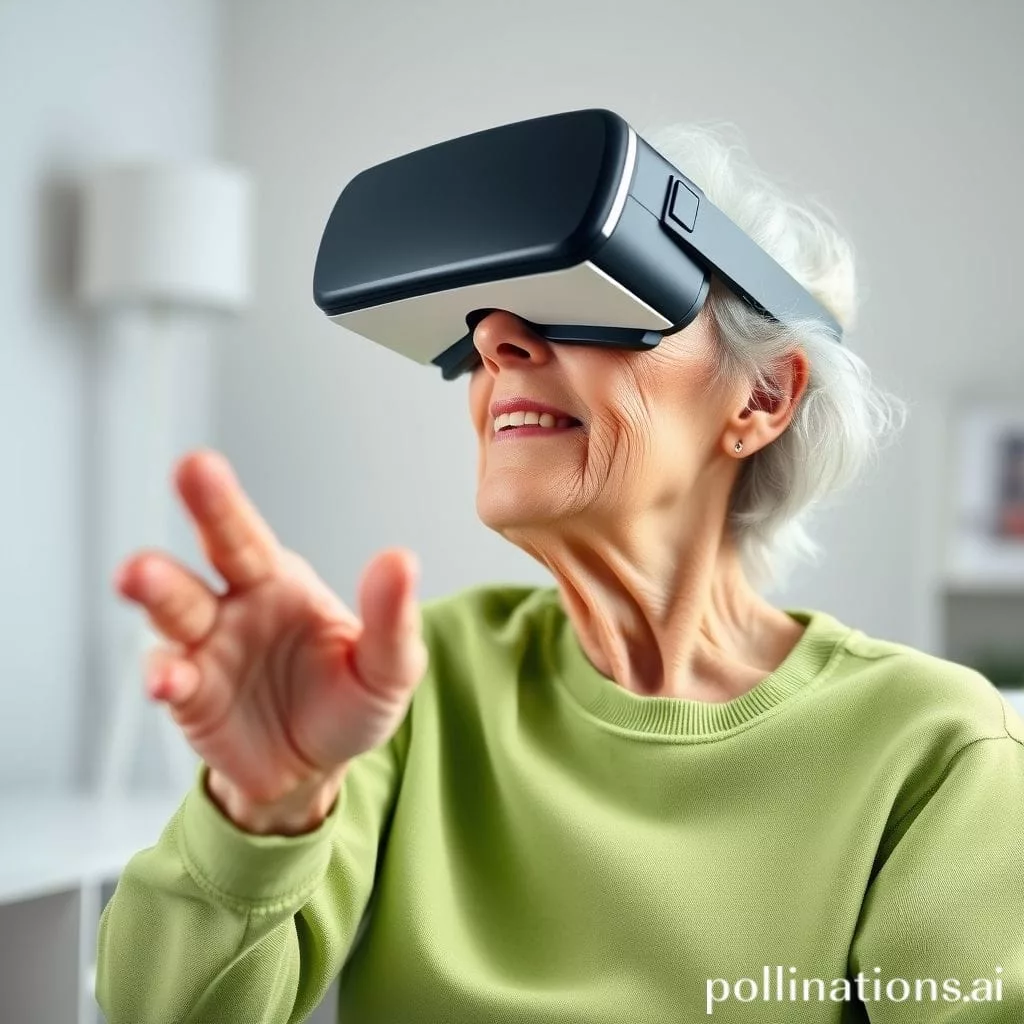Virtual Reality Elderly Care: How VR Technology Transforms Senior Living in 2025
Virtual reality elderly care is revolutionizing senior living facilities worldwide, offering proven therapeutic benefits for memory care, social engagement, and overall wellbeing. With over 50% of major senior care providers now implementing VR dementia therapy programs, this innovative technology has become a cornerstone of modern elderly care.
VR Dementia Therapy: Memory Enhancement and Cognitive Health
Senior VR technology provides powerful memory stimulation through immersive experiences. A systematic review in Frontiers in Aging Neuroscience demonstrates that nature-based VR significantly reduces agitation and improves cognitive engagement in dementia patients by up to 40%.
Key cognitive benefits of VR for elderly care:
- Triggers autobiographical memories through familiar virtual environments
- Stimulates neural pathways for memory retention
- Provides safe spaces for reminiscence therapy
- Enhances emotional regulation and reduces behavioral symptoms
Virtual Reality Mental Health Benefits for Seniors
Recent clinical studies show VR interventions reduce depression and apathy by up to 40% in seniors. Leading platforms like Rendever demonstrate remarkable social outcomes: 100% of residents increased social network strength, while Stanford Medicine research found 80% reported improved positivity and 60% felt less isolated. These mental health applications for seniors build on evidence-based virtual reality therapy techniques proven effective for anxiety and mood disorders across all age groups.
Current VR Adoption in Senior Care Facilities
The adoption of virtual reality elderly care technology has accelerated dramatically. Assisted living facilities show highest adoption at 26.6%, with the global VR healthcare market projected to reach $57.6 billion by 2030.
VR Applications for Senior Health and Wellness
VR for Alzheimer’s Disease and Dementia Care
2024 clinical research published in JMIR demonstrates VR dementia therapy effectiveness through:
- Memory training exercises tailored to individual patients
- Reminiscence therapy using historical environments
- Daily living skill practice for Alzheimer’s disease patients
- Reduced agitation during care routines
Physical Health and Fall Prevention with Senior VR Technology
Virtual balance training programs significantly reduce fall risk by up to 35%, improve motor function, and enhance physical activity through engaging, gamified experiences designed specifically for seniors.
Implementing Virtual Reality Elderly Care: Step-by-Step Guide
Getting Started with VR in Senior Living
- Start Small: Begin with 5-10 resident pilot programs
- Staff Training: Provide comprehensive team training on VR technology
- Content Selection: Choose culturally relevant, age-appropriate experiences
- Outcome Tracking: Monitor mood, cognitive function, and engagement
Equipment and Safety Considerations
Required technology: Senior-friendly head-mounted displays, adjustable headsets with prescription lens options, simple controllers designed for limited dexterity, and dedicated technical support. Safety protocols include supervised sessions, appropriate 10-15 minute session lengths, and regular monitoring for motion sickness or discomfort.
Measuring Success: VR Elderly Care Outcomes
Senior care facilities implementing VR therapy programs report impressive outcomes:
- Improved wellbeing and reduced medication needs
- 30-40% decrease in behavioral incidents
- Significantly improved resident satisfaction scores
- Break-even within 18-24 months with 200-300% ROI over three years
Grant funding is available through NIH healthcare innovation programs, with potential Medicare reimbursement for therapeutic interventions.
Future of Virtual Reality in Elderly Care
Next-generation senior VR technology includes:
- AI-powered personalized experiences adapting to cognitive abilities
- Adaptive difficulty levels matching individual progression
- Enhanced sensory experiences including haptic feedback
- Multi-user environments for family connections across distances
Research shows elderly participants display strong enthusiasm and engagement when proper training and support are provided.
Conclusion: VR Technology Revolutionizing Senior Care
Virtual reality elderly care significantly enhances senior quality of life through improved memory function, reduced isolation, and better mental health outcomes. Successful VR dementia therapy programs require starting small, prioritizing comprehensive staff training, focusing on personalized content, and continuously monitoring outcomes.
Virtual reality represents the future of elderly care, combining innovative technology with compassionate, person-centered approaches to senior wellbeing. As adoption rates continue climbing and evidence mounts, VR is becoming an essential tool in modern senior living facilities worldwide. The same immersive technologies are also transforming how healthcare professionals train, with VR medical training programs preparing the next generation of caregivers to deliver exceptional elderly care services.
References & Resources
- Rendever Platform – Leading VR platform for senior living communities with published outcomes
- MyndVR for Seniors – Purpose-built VR system designed specifically for elderly care facilities
- Stanford VR Isolation Study – Research on VR reducing social isolation in older adults
- Frontiers: VR Cognitive Effects – Systematic review and meta-analysis on VR intervention for mild cognitive impairment and dementia
- NIA Aging Research – National Institute on Aging research on VR for cognitive health
- BMC Geriatrics: VR Fall Prevention – Randomized controlled trial on VR balance exercises reducing fall risk in elderly
